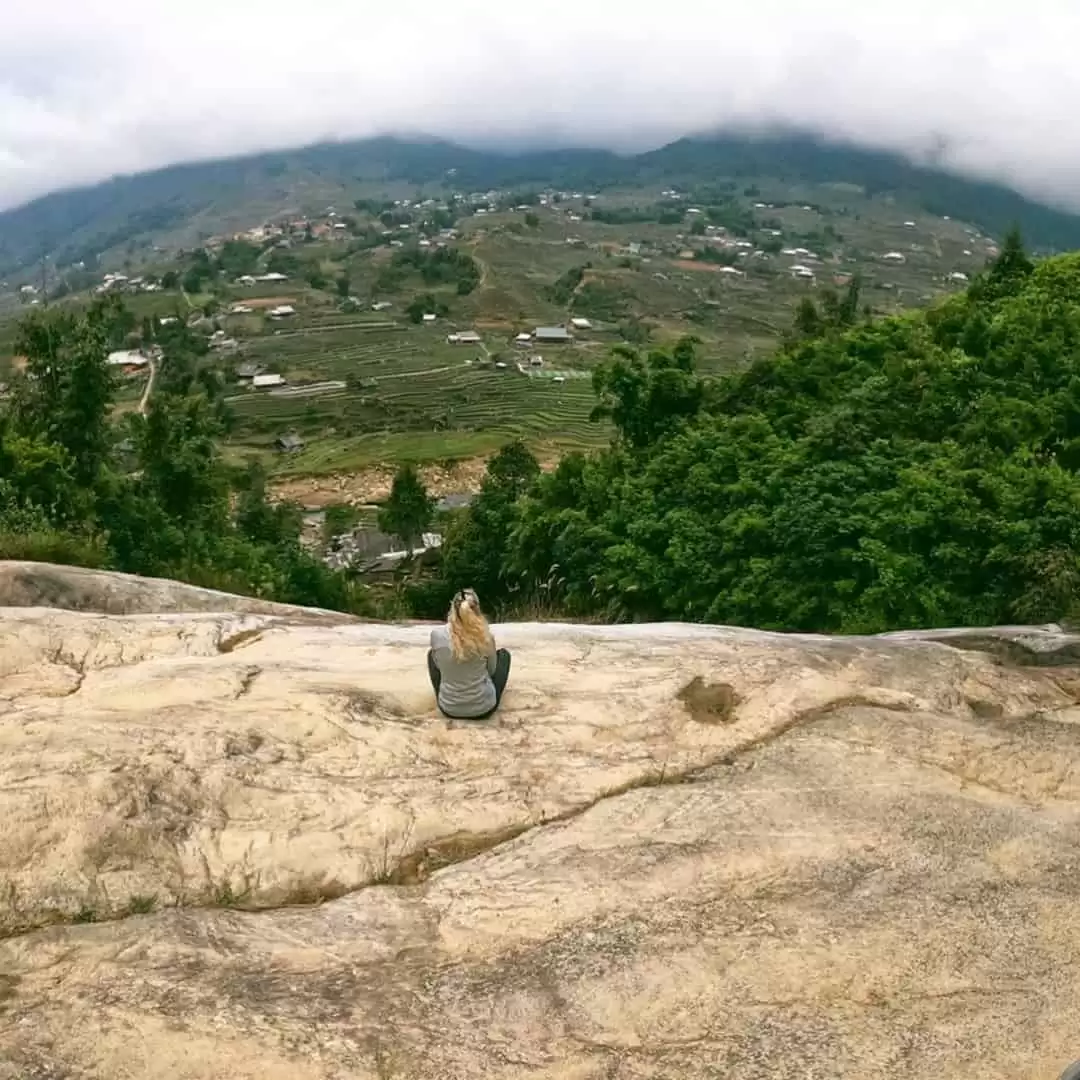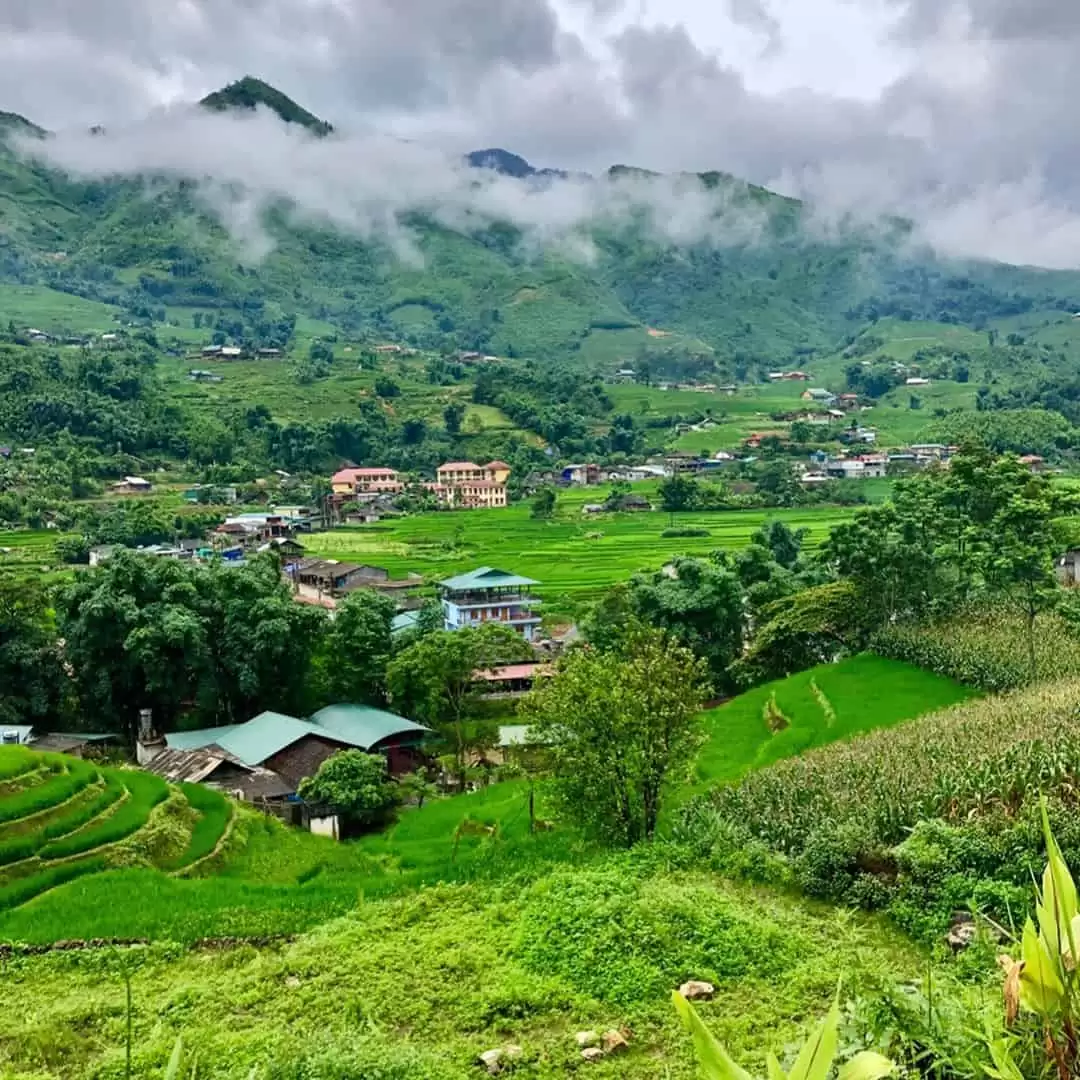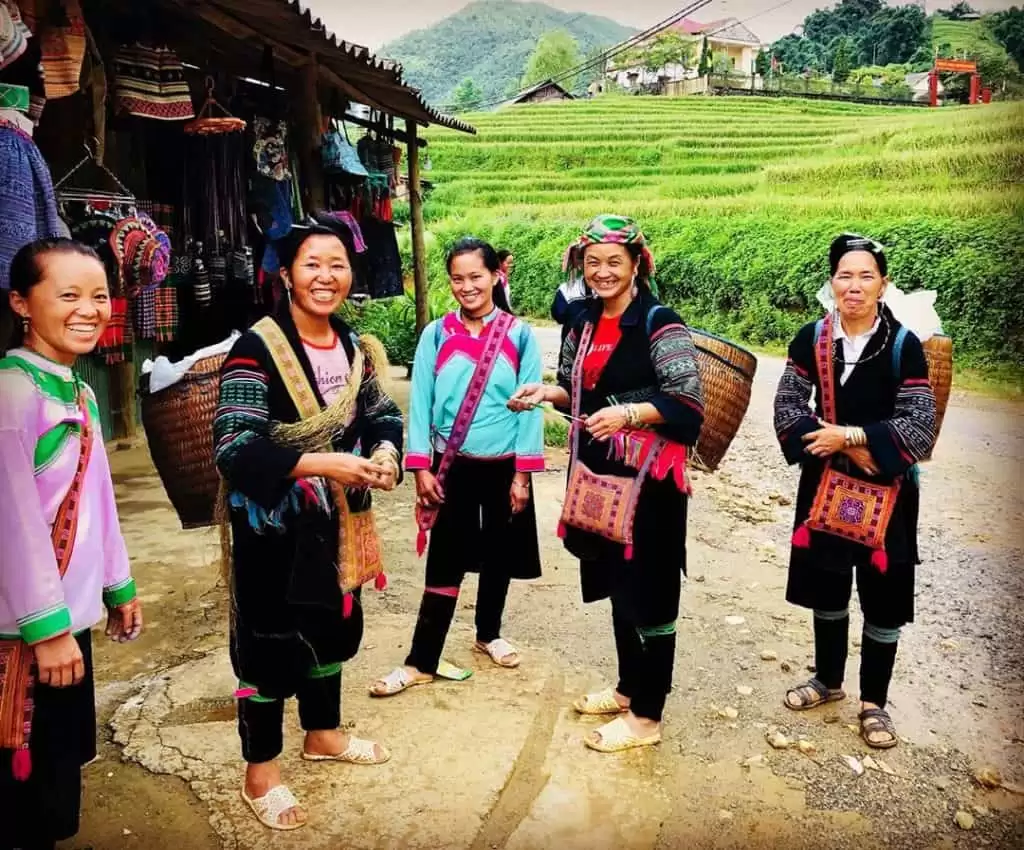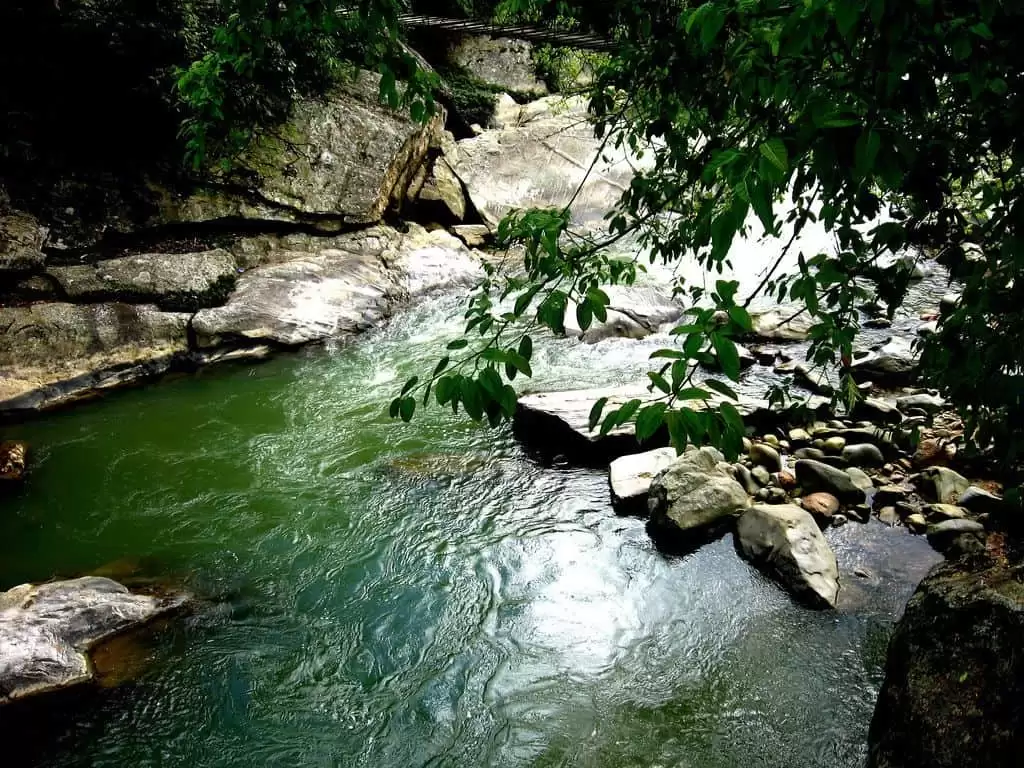Sapa has been famous for the charming beauty of a mountainous town, which attracts millions of visitors annually. Coming to this town, you will be offered a wide range of choices for places of interest, each destination has its own special features. And if you are finding a peaceful place to escape from the busy life, Ta Van Village is an ideal selection for you.
I. History of Ta Van Village

Ta Van Giay is the village where the Giay ethnic has inhabited for more than 300 years. According to the elders, the earliest family in this village was San family, then followed by the Vang family, Lu family and others. The residents in Lao Cai called this village “Muong Va”, which means “arm span”.
Legend has it that, in the past, only the Tay ethnic group lived in this village, so it got that name. Nowadays, in Ta Van Village, there is still a hilltop called “pom mo da tay”, which means the hill of Tay’s tomb.
II. Best Time to Visit Ta Van Village
The best time to visit Ta Van Village is from April to August. The climate at this time is quite favorable for summer trips with sunny days.
Besides, the time from November to January is also ideal for those who love trekking and discovering the captivating beauty of the jungles here with yellow paddy fields and white peach blossom hills.
III. Highlights of Ta Van Village

Coming to Ta Van, visitors not only see themselves in the picturesque scenery of nature with the murmuring sound of streams and the singing of wild birds calling you to find love but also enjoy the peaceful appearance of the village. The village leans back on the Hoang Lien Son Mountain and Muong Hoa Stream is on the front side. The houses of the local face the Northeast direction. According to the feng-shui concept of the Giay, it is not good to build a house facing the mountain and downwards the stream flow. For hundreds of years, the Giay people still kept their typical culture in the customs, religion and festival.
The inhabitants in Ta Van Village include the Mong, the Red Dao and the Giay ethnic groups. Not being the same as other tourist attractions where people live on tourism, in Ta Van Village, the locals cultivate rice and food on the terraces as well as raise stock to serve their daily life. Tourists coming to this village are just like guests of the locals, and you can really blend into the daily life of the villagers.
Ta Van Village owns immense paddy fields on the hill slopes, rustic thatched houses of the ethnic minorities and narrow dirt roads with colorful flowers on the two sides. All the things combine with others to draw a stunning picture in a mountainous area. A visit to Ta Van village is a journey back to the past, where people and nature live together in harmony. This village has an immediately strange attraction for those who love travelling.
If you have a chance to stay here for a long time, you will for sure gradually absorb and fall in love with the fresh atmosphere and the gentle rhythm in the life of the local residents. The life of the ethnic groups in Ta Van Village comprises a lot of mysterious cultural identities that you may never have heard before.
IV. What to See and Do in Ta Van Village?
1. Terraced Fields

It is a pity if you come to Ta Van Village without seeing the outstanding scenery of the terraced fields there. The field winds on the hillsides and spreads out to the horizon. The terraced fields and the mountain scenery create a majestic nature picture. In each season, the fields in Ta Van Village have their own beauty. Sometimes it is like the giant mirrors, sometimes it is like a patchwork of yellow carpets, and sometimes it is like the huge green silks.
2. Houses of Ethnic Minorities in Ta Van Village

Another impression of Ta Van Village is the ancient houses located close to the roadside. The houses were made of wood which has existed for nearly 100 years. The structure of the houses is typical for the construction of the Giay ethnic. Coming to visit these houses, sitting by the fire, sipping a glass of corn wine and listening to the stories about this village will make you find yourself greatly expanded.
3. Taking Photos in Nice Homestays in Ta Van Village

A one-day sightseeing perhaps is not enough, so you will need to find a place to stay for several days in order that you can visit other nearby attractions. Like in other villages for homestays in Sapa, a lot of homestays here have mushroomed to serve the needs of both domestic and foreign tourists. Not only are the services these homestays convenient but the views from these places will satisfy any difficult tourists.
4. Trying on the Ethnic Costumes

The unique and colorful clothes of the ethnic minorities here is worth your try. You can rent these outfits at any shops, then take gorgeous photos with your friends in the middle of the terraced fields, on the bank of the stream or by the perched bridge crossing the river. It is an experience that you should not miss when coming to Ta Van Village.
5. Discovering May Bridge and Muong Hoa Stream

The bridge and stream are the symbol of Ta Van Village. Most of the bridges leading to Ta Van Village have been replaced by cement and iron bridges to ensure safety, but May Bridge (Cloud Bridge) is an exception. May Bridge is made of thin wooden slices and forest ropes, which adorns the pristine appearance of the scenery there. May Bridge however was built a long time ago, and it is not easy to cross the bridge, so you should be careful, especially in the rainy season.

6. Enjoying Specialties in Ta Van Sapa Village
Coming to a new destination without having a try on the specialties means that you have never been there. The cuisine of Northwest of Vietnam, in general, and in Sapa, in particular, contains various special ingredients that you cannot find anywhere else in the world. Coming to Ta Van Village, you should not miss the typical cuisine there with the specialties you have never tried before such as steamed meat, five-color steamed glutinous rice, river fish, “Thang Co”, frog cooked with bamboo sprouts and so on.
V. How to Get to Ta Van Village?
Ta Van Village is about 11 kilometers from the center of Sapa town. Tourists can get there either by car or by motorbike.
If you want to immerse yourself in the nature of Sapa, it would be a great idea to go by motorbike, passing the sinuous paths and contemplating the grandiose mountains and deep valleys along the roads.
VI. Extra Tips
- If you want to stay in Ta Van Village for several days, there are various homestays at reasonable prices in the village. You should consult on the Internet and book in advance, especially in the tourism seasons.
- The nearby attractions that would make your journey perfect include Cat Cat Village, Lao Chai Village, and Ham Rong Mountain.
- If you plan to visit Ta Van Village at the end of the year, don’t forget to prepare your winter clothes. The weather on high mountains is much colder than in the lower areas.
- You should not go to Ta Van Village on weekends. The crowded atmosphere of the tourists may prevent you from enjoying your trip. Instead, just go on weekdays.
Not being affected by the hustle and bustle of modern society, Ta Van Village still remains its pristine beauty in each thatched house, each path-way, each stone and every ethnic person. If you have a chance to visit Sapa, don’t forget to come to Ta Van Village to feel the attractiveness of a village perched on mountain slopes.